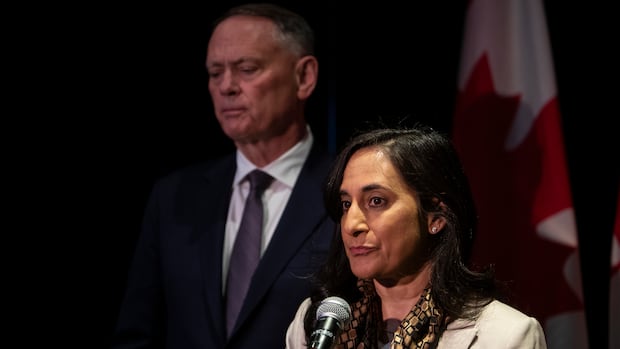Global Affairs Canada has called in Russia’s ambassador following the recent incident where Russian drones trespassed through Polish airspace. Foreign Affairs Minister Anita Anand expressed that Ambassador Oleg Stepanov received an official reprimand during the summon on Wednesday. Anand highlighted that the violation of Polish airspace by Russian drones also constituted a breach of NATO’s airspace standards.
In response to the incursion, Poland took action by shooting down multiple drones within its borders with the assistance of military aircraft from fellow NATO members. This marked the first instance of a Western alliance member engaging in such measures during Russia’s conflict in Ukraine. Polish Prime Minister Donald Tusk emphasized the severity of the situation, stating that the country is facing its highest risk of open conflict since World War II.
Tusk disclosed that there were 19 unauthorized entries into Polish airspace, prompting the government to invoke Article 4 for consultations with other NATO countries. Despite claims by Russia and Belarus that the incursions may have been accidental due to network interference, Poland dismissed this explanation. Tusk reaffirmed this stance, asserting that the drone attacks were intentional and not a mistake.
NATO Secretary General Mark Rutte condemned the reckless nature of the incident, regardless of the perpetrator’s intent. As a response to the escalating tensions, NATO announced enhancements to its defensive capabilities along the eastern flank adjacent to Belarus, Russia, and Ukraine. Operation Eastern Sentry will introduce additional equipment from France, Denmark, Germany, and the U.K., augmenting existing air and ground defenses.
Canada welcomed the reinforcement of defenses along NATO’s eastern border, as stated by Minister Anand. The United Nations Security Council convened to address the drone violation in Poland, while G7 finance ministers, including Canada, engaged in discussions to explore further economic measures to exert pressure on Russia. The G7, comprising Canada, the U.S., France, Germany, Italy, Japan, and the U.K., along with the EU, emphasized the commitment to halting Russia’s hostilities and discussed potential sanctions and economic actions against Russia. Prime Minister Mark Carney emphasized the importance of maintaining pressure on Moscow following threats made by Russian President Vladimir Putin against foreign troops in Ukraine.



